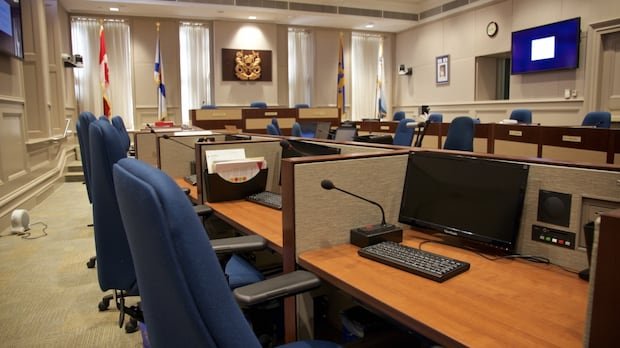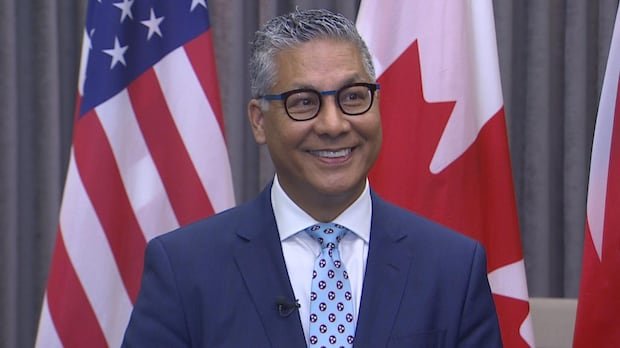An Alberta widow will be allowed to keep tens of thousands of dollars her late husband left her in retirement savings after winning a years-long court battle against the Canada Revenue Agency.
Tuesday’s ruling said Marlene Enns is exempt from a clause in Canadian tax law that gives the tax agency power to collect unpaid tax debts from spouses or common-law partners in certain cases because, under the law, her marriage ended in the moment when her husband died.
“A person is only a ‘spouse’ during the period during which he or she was married, and therefore, when the marriage ends, a person is no longer a ‘spouse,'” the judge wrote.
The appeal court’s ruling resolves a question that for years had no clear answer, after other cases involving widows in the Tax Court of Canada ended with conflicting answers: what the definition of “spouse” should be in cases such as that of Enns.
Lawyers say it was an important issue to resolve when it comes to a tool that the CRA, which one described as one of the country’s toughest creditors, can use to hold certain people liable for another’s tax debt under certain circumstances.
“This is good news for spouses of deceased people who owe taxes, for the taxpayer community and for Canadians,” said lawyer Lori Bokenfohr, who is not connected to the case but specializes in tax law.
“I mean, family members are constantly giving each other gifts. You don’t have to be rich to have a Section 160 problem.”
Widow on the hook for unpaid taxes, CRA says
Marlene Enns was the sole beneficiary when Peter Enns, her husband of nearly 40 years, died in 2013. She inherited an RRSP worth just over $102,000 and put it into her own frozen bank account.
Four years later, a CRA assessment found that Peter owed nearly $150,000 in income taxes when he died.
The agency turned to a collection tool available under the Income Tax Act to try to get the money from Marlene, as Peter’s wife. Under the tool, called Section 160, the CRA can hold someone who receives property from close contacts, such as friends and family, liable for less than the fair market value of their outstanding tax debt.
The clause is intended to prevent Canadians from giving their property (whether cash, a car, a house or any other asset) to someone at arm’s length while they, on paper, appear to not have enough money to pay what is due to them. tax ratio.
But the clause also means that anyone who gives property to a loved one may end up footing their tax bill, without realizing they have done so.
“Here the CRA said, ‘Well, wife, you received this RRSP with no income (it’s a gift under will) and your late husband owed taxes at the time he died, so now it’s your tax problem too.'” he said. Bokenfohr, who practices in Calgary.
The CRA wanted to collect the full amount Marlene got from Peter’s RRSP ($102,789) to settle her income tax debt.
‘Spouse’ is not clearly defined
Marlene eventually took the matter to court. He said the tax agency could not use Section 160 to collect because the definition of “spouse” does not include a widow.
The Tax Court of Canada ruled against Marlene in 2023, finding that Marlene was still defined as Peter’s “spouse” in the matter even after his death.
On Tuesday, the Federal Court of Appeal made the opposite decision.
According to various legal and dictionary definitions, the top court said, a spouse is defined as a married person. Again, by definition, it said, a marriage ends the moment one spouse dies, so Marlene was not a “spouse” when she inherited the retirement savings because Peter had died.
The court said that means the CRA cannot use Section 160 to collect from Marlene and settle Peter’s debts. He also ordered the CRA to cover Marlene’s legal bills.
CBC News contacted the CRA for comment but did not receive a response via publication.
Chad Brown, Enns’ attorney, said he sees the case as an example of how the CRA uses the provision to circumvent protections in place to shield RRSPs from taxes.
“This approach has inequitable consequences. As the Federal Court of Appeal noted in enns“Not only does the CRA collect the deferred plan funds, but the surviving spouse also pays taxes on the withdrawal of those funds, leaving them worse off overall,” he wrote in an email.
Until the Enns case, the Tax Court of Canada was divided on the definition of spouse under Section 160. One case found that the term “spouse” did not include widows in 2013, but another decision two years later found that widows still being spouses.







